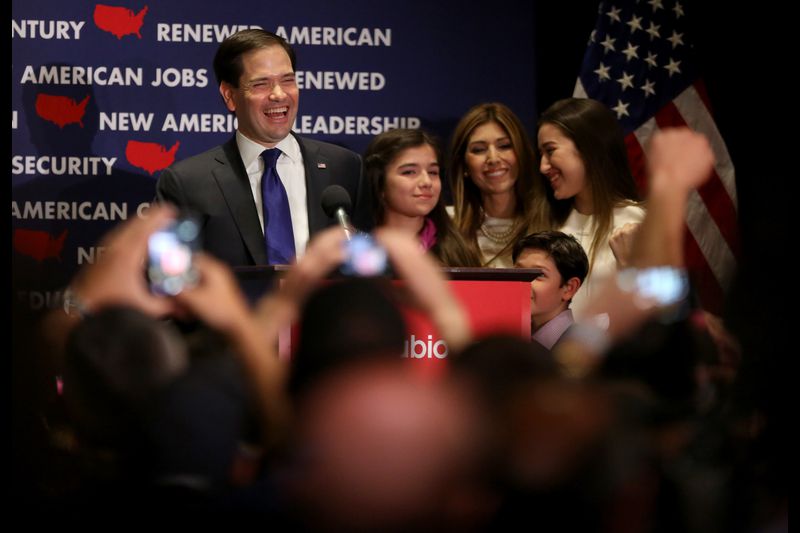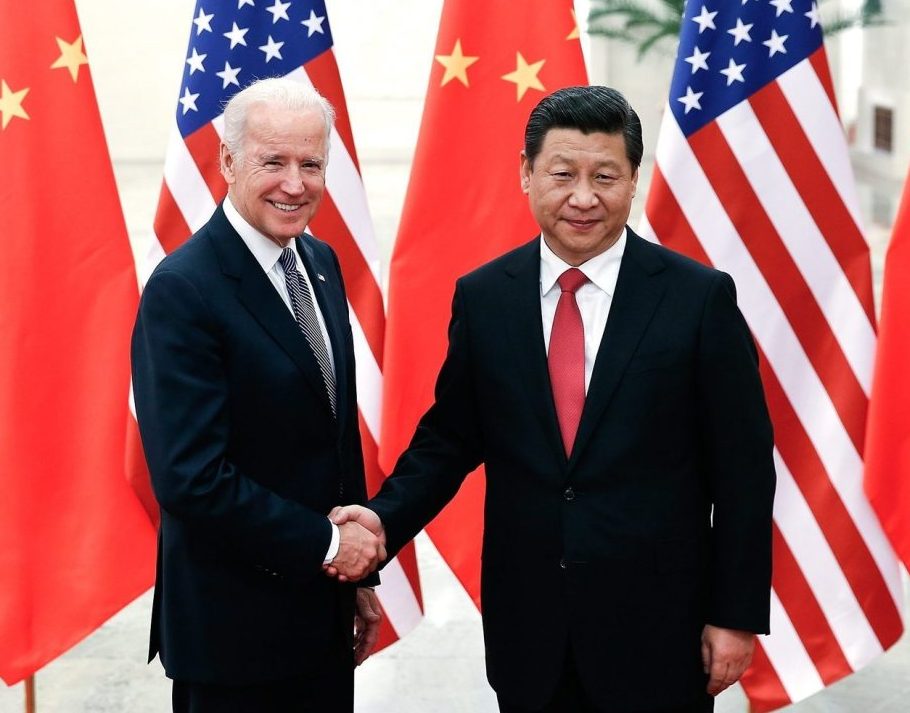Congress Should Join the Discussion Senator Rubio Has Begun.
The Meaning of the Woke Military

When the armed forces serve a global corporate agenda, it’s no surprise that HR mandates are mission critical.
When official Department of Defense spokesmen attacked Tucker Carlson—who criticized the military’s integration of diversity-centered staffing mandates—they exposed a crucial gap between what Americans believe their military to be and the true purpose of our trillion-dollar war machine. What is being interpreted as an escalation in the culture wars is actually about how our regime perceives power itself.
The primary purpose of the U.S. military is to protect the global economic status quo, sometimes known as the “neoliberal order” or “the Washington Consensus.” General Officers and Senior Enlisted men responding to Carlson’s remarks about women in combat did so in their official capacity as representatives of the United States Department of Defense, in uniform, using official Twitter accounts without standard disclaimers. While they insisted they were simply “defending their soldiers” from unjust criticism, this superficial claim fails to capture the truth about the unfolding dynamic.
The debate that is playing out right now about sex, gender, and the military is happening only because we never, as a country, actually had it. We never sat down and had a discussion about the merits of pushing our military services to adopt the goals of gender “neutrality” that have emerged as a cultural Schelling point over the last decade in the civilian world. “We” just did it, through executive orders and mandates within the Defense Department’s civilian leadership. This wasn’t part of any platform or campaign promise that a politician ran on, it wasn’t caused by any organic change in opinion by the general public on women in combat, and it was never talked about outside of semi-closed groups already intimately familiar with the data on the subject.
Scarcely anyone who isn’t already connected to the military—as a veteran, on active duty, or involved in defense policy circles—knew that it had gone all-in on complete and total sex and gender integration in all branches and roles. For others, Carlson exposed them to something that’s been in progress for years. Millions of his viewers—patriotic Americans who care about the security of the nation and have immense respect for the military—probably felt like they had been lied to and betrayed. They’ve all grown up with a general idea that the “point” of the U.S. military is to deter war, and failing that, to win the war that follows.
But this isn’t the purpose anymore.
The common refrain from both civilian leaders and active-duty service members alike is that the military “should be a reflection of our values as a nation.” But the military is becoming a reflection of the values of the global economic order, not those of the United States. Over the last 10 years, and with increasing intensity over the last five, corporations and governments in the West have set out to redesign their entire societies along specific goals regarding sex and gender representation for purely socio-political reasons. Gender parity in boardrooms, among senior management, and in executive training, along with other diversity-related mandates, is widely considered—at least among elites—a necessity.
These explicit cultural changes bled naturally and inevitably into the staffing and design of the armed forces of the United States. After all, the U.S. is an essential institution to the maintenance of the neoliberal order, and it wouldn’t make sense for it not to reflect the same principles of racial and gender diversity that cabinets, corporate boardrooms, and university faculty are expected to present. But has anyone asked whether redesigning the military to be a reflection of these new values and goals makes for good warfighting? Does it make formations more efficient, effective, and lethal in making war?
An oft-cited Marine Corps study on this subject comes back with the answer as a resounding “no.” But, again, focusing on the details of the tactical performance of sex and gender-integrated formations represents a fundamental misunderstanding of our cultural moment. In an era where the maintenance of the global economic order is a function of the United States military’s ability to maintain continuous autonomous surveillance, drop GBU-24s at scale, and deploy a carrier vessel fleet in a “show of force” to deter pirates, no one is going to care if your infantry platoon sees a decrease in its average fitness scores. Over time, these small issues of sex and gender integration may bubble up and fester at the surface of a military organization and make it weak and unreliable—this is the perspective of people sympathetic to Tucker Carlson’s argument—but the leaders of the global economic order are not concerned with the details here. These are marginal issues, and as in any large organization, leaders accept that are always going to be parts of the military that are dysfunctional, serve no purpose, or are downright wasteful. The American public is exposed to an image of an armed forces composed of bearded alpha males in special operations units, cigar-smoking paratroopers rescuing the world from fascism, or the sight of the Blue Angels tearing across the sky above the Super Bowl, all designed to enhance the perception that the U.S. military is unstoppable. The reality of a bloated million-headed mass of semi-fit clerks does not set the blood pumping.
Claims of “imperial overreach,” or of a military tired and worn out after 20 years of constant military operations around the world, are overstated because deployment is a planned dance. To illustrate the commitment the U.S. has to neoliberal security requirements, starting in 2002, and culminating with the implementation of the Brigade Combat Team, the U.S. Army redesigned the entire force around the concept of “continuous operations.” A roughly 4,000-soldier unit (depending on type) is an independently deployable force designed to operate as a singular organization that brings with it whatever combat, support, and logistics power are needed. The Army is, by design, built for continuous marginal operations. Only a portion is deployed at once, and the unit rotations are explicitly built to allow units to reequip, rearm, and retrain. Thus, any problems with the design or demographics of the formation are isolated and “risk managed.” Since we always have a replacement unit on the calendar, any problems that emerge are dealt with after re-deployment.
Operating on the margins in this way conditions an organization into short-term thinking. Eventually a tail event occurs—a black swan that forces the system to operate above full capacity—that exposes all the rot that has built up in the system over time, which was intentionally ignored to ensure the operation continues.
The black swan event on the horizon that will expose any lingering lethargy in the U.S. Army and other military branches—and thus the global economic order itself—is a cataclysmic confrontation with The People’s Republic of China, probably over the status of Taiwan. There are several ways, from an outright fait accompli to a brokered deal, to avoid this event. Avoiding a catastrophic naval engagement and a bloody and gruesome island-hopping war could be explained as allowing a conflict on the margins in order to avoid the one at the center. But much of the marginal value of the global economic order comes from manufacturing cheap goods in China and semiconductors in Taiwan; changing the terms of this arrangement could be a killing blow to the current economic order. Maintaining this order means maxing out the capacity of an institution built on the same operational principles as the global economic system itself, with a built-in margin of waste that reflects socio-political priorities. All of the de-optimizations implemented to make the military “look like America” will be exposed.
All of a sudden we’re back to talking about what the U.S. military should be preparing for. A giant WWIII scenario, or a limited engagement with a near-peer adversary where new technologies clash for the first time? All of the General Officers and Senior Enlisted participating in this political debate don’t know it, but they are advocating for option three—the status quo. For those on active duty who are just meeting this realization for the first time, and disagree with this status quo, this is a difficult thing to grapple with. The design of the military—the demographic makeup, how the force is structured, its size—are choices made by civilian politicians, who have every economic incentive in the world to continue with business as usual.
Tucker Carlson may have kicked a hornet’s nest by pointing out that the U.S. military is captive to a cultural program that most Americans do not agree with. But the military serves the global economic order, not the average American. To the extent that the people in charge are concerned about the risks of designing a military based on principles of equity and diversity, their concern stops at ensuring that global capital movement is not impacted. Focusing on the technical details of how military units actually perform will not return us to status quo ante. The armed forces have modeled themselves according to human resources dictates set by the architects of neoliberalism. To face China, the underlying assumption of neoliberalism is that continued diversity and inclusion initiatives and access to markets will, by definition, reduce conflict. Unfortunately for the neoliberals, the Chinese Communist Party sees the U.S.-dominated neoliberal order itself as something to be defeated. Perhaps they’re right.
The American Mind presents a range of perspectives. Views are writers’ own and do not necessarily represent those of The Claremont Institute.
The American Mind is a publication of the Claremont Institute, a non-profit 501(c)(3) organization, dedicated to restoring the principles of the American Founding to their rightful, preeminent authority in our national life. Interested in supporting our work? Gifts to the Claremont Institute are tax-deductible.
United States Secretary of State Mike Pompeo delivered the keynote address at the Claremont Institute's 40th Anniversary Gala as this year's recipient of the Institute's Statesmanship Award.
American voters will decide if the PRC wins.



